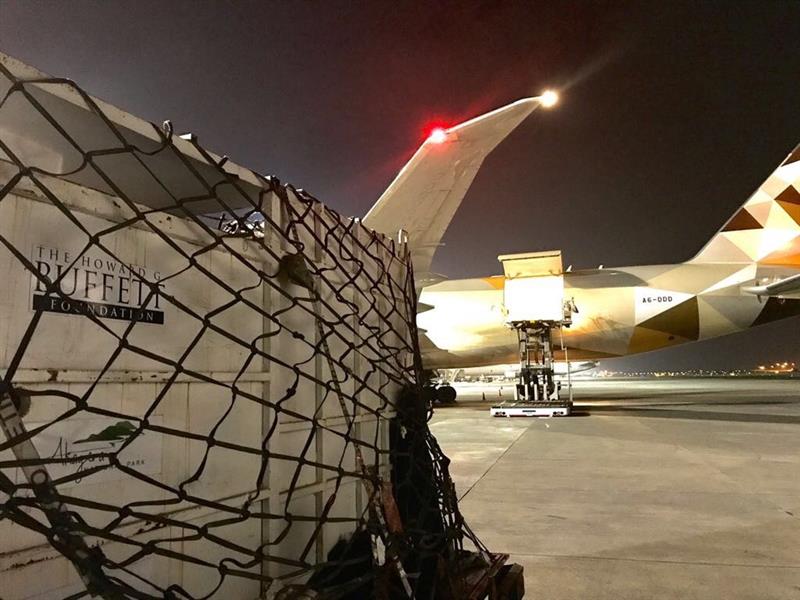
Due to the complex nature of the operation, logistical planning for the project took over a year.
On behalf of African Parks, a conservation non-profit organisation that manages national parks and protected areas across the continent, Intradco chartered two Etihad Boeing 777 freighters to transport 19 black rhinos from Johannesburg to the Rwandan capital, Kigali.
After landing at Kigali International airport, the rhinos were carefully transferred to trucks to continue the final leg of their journey by road, under police escort.
Ten rhinos travelled on the first flight and nine on the second, accompanied at all times by a specialist team of three vets and two attendants on the journey from Johannesburg to Akagera National Park.

Returning the animals to the Rwandan wilderness represented a historical moment, after the species disappeared in 2007 following decades of poaching. Commenting on the project, Intradco Project Manager Tom Lamb said, “It is a brilliant achievement to return the extremely rare eastern black rhino to Rwanda after a 10-year absence. There are only 1,000 left globally so moving 2% of the world's population was a big responsibility and challenge, and an incredible project to be a part of.”
David Kerr, Senior Vice President Etihad Cargo, said: “We are proud to play this integral role in returning an endangered species to its home.” He added that, last year, the airline became one of the first to sign the Declaration of the United for Wildlife International Taskforce on the Transportation of Illegal Wildlife Products, “as a demonstration of our support for preventing illegal wildlife trade.”
Kerr concluded: “As a key mode of transport for carrying this caught wildlife across borders, it is the responsibility of the aviation industry to take action to prevent this.”





